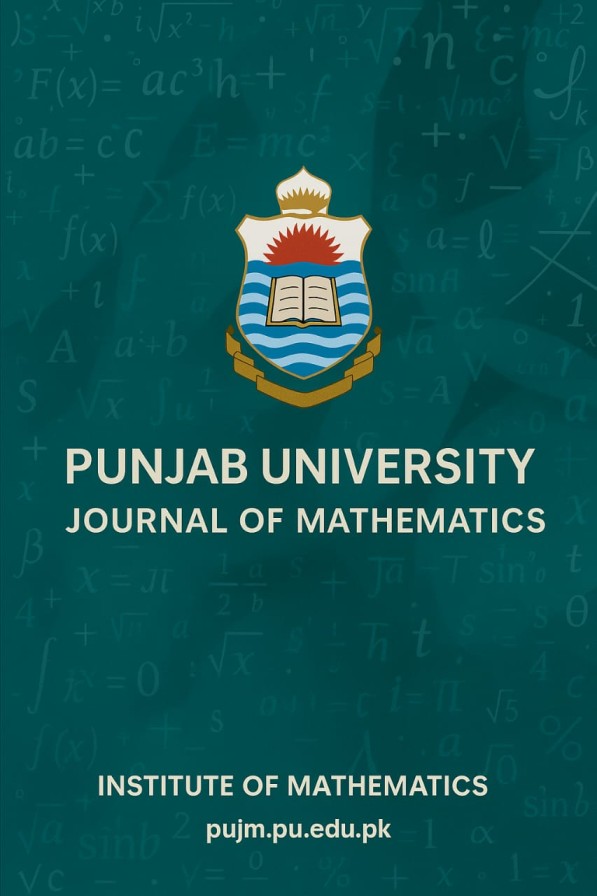Monogenity of Biquadratic Fields Related to Dedekind-Hasse’s Problem
Keywords:
Monogenity, Biquadratic field, Discriminant, Integral basisAbstract
The aim of this paper is to determine the monogenity of imaginary, and real biquadratic fields K over the field Q of rational numbers and the relative monogenity of K over its quadratic subfield k. To characterize such phenomena it is necessary to determine an integral basis of the field K and to evaluate the relative norm of the different d(ξ) with respect to K/k of an integer ξ in K. Here d(ξ) is defined by Q ρ∈G\{ι} (ξ − ξ ρ ), where ξ − ξ ρ denotes the partial different of an integer ξ in K, and G and ι denote the Galois group of K/Q and the identity embedding of K, respectively. For the succinct proof of non-monogenity, we consider a single linear Diophantine equation consisted of the partial differents with unit coefficients.
Downloads
Downloads
Published
Issue
Section
License
Copyright (c) 2015 Mamoona Sultan, Yoshifumi Kohno, Toru Nakahara

This work is licensed under a Creative Commons Attribution-NonCommercial-NoDerivatives 4.0 International License.


